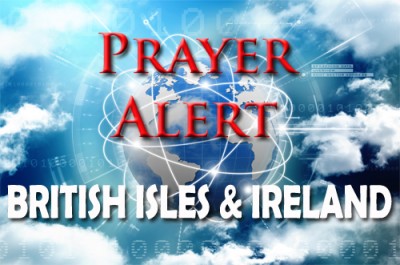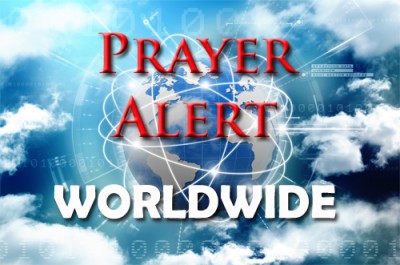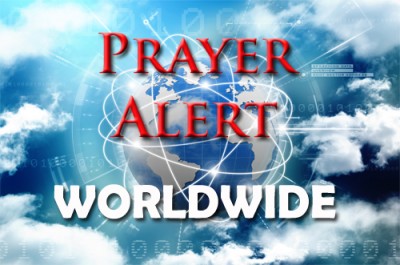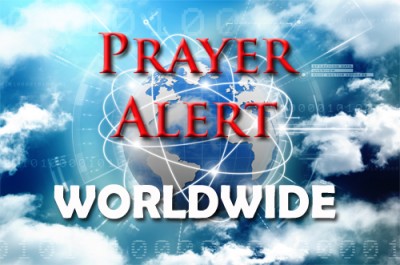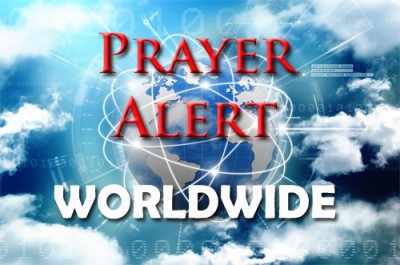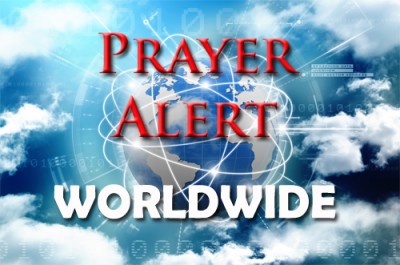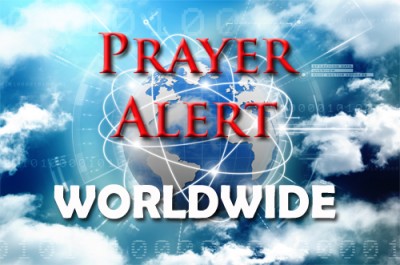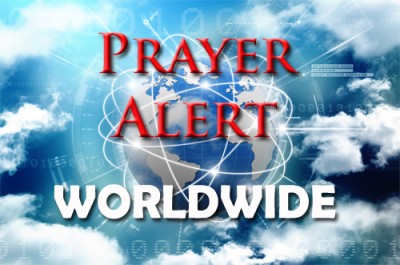Fairtrade Easter eggs
12 Feb 2016Boys as young as ten are trafficked to perform the back-breaking and hazardous job of harvesting cocoa beans in West Africa. These beans are turned into the chocolate that we buy from local supermarkets. As Easter approaches, millions of chocolate Easter eggs will be sold which may have been made with cocoa beans picked by a trafficked child. Supermarkets have enormous buying power and influence, and STOP THE TRAFFIK are asking them to help end the trafficking of children by stocking more certified chocolate eggs - those stamped with the Fairtrade, Rainforest Alliance, or UTZ Certified mark. This certification shows that the chocolate has been made in monitored conditions that aim to prevent the trafficking of children. STOP THE TRAFFIK are asking us to visit local supermarkets and then report back in an online questionnaire what kind of Fairtrade Easter eggs they have in stock.
DR Congo: suffering but awaiting a new beginning
12 Feb 2016At least fifteen people were killed in clashes between armed groups as ethnic tensions broke out in the village of Mukeberwa in North Kivu province. Clashes then erupted between the assailants and the Hutu rebels of the Democratic Forces for the Liberation of Rwanda, or FDLR, who control the village. A UN peace-keeping mission has reported rises in inter-ethnic tensions since January. Meanwhile Prayercast report that Christianity has multiplied and evangelicals have increased ten-fold since 1960, fruit of the many martyrs who gave their lives for Christ in 1964. Their blood has truly been the seed of the Church. However, deep demonic strongholds still hold DR Congo in bondage. Untold horrors, civil wars, killings, tribalism, corruption, rape, cannibalism, witchcraft, and occult practices hold many captive to fear and the forces of evil. The Church largely lacks a true understanding of the Gospel. See
Afghanistan: prayer request from a missionary
12 Feb 2016‘Workers arriving in the country need to fly onwards; however, our aviation organisation’s licence has been withdrawn. Air travel is crucial for working in remote areas. There are people studying the local languages who need to enter the country, so please pray for the difficult visa situation. Pray for brothers from the neighbouring country who visit believers in the mountain region, where the security is not good. We are thankful for a good start to our medical project in the west. Pray for wisdom to carry out projects in a skilful way, building relationships with those to whom we reach out. A brother visited a group in the north and was amazed how many believers were present. Please pray for a defence minister, as no-one has yet been appointed. There is still much T*ban fighting: they destroyed a major power line, so the capital only has electricity during the night for a few hours.’ For information on the struggling government, click the ‘more’ button.
The Catholic Church is under growing pressure to relax its ban on artificial contraception as women in some Latin American countries have been advised not to get pregnant for up to two years amid fears over the Zika virus. The official Catholic view is that artificial birth control is forbidden under any circumstances, even to help prevent HIV infection. Church leaders who have spoken out have reaffirmed the catechism teaching that contraception is evil. Father Luciano Brito, spokesman for the area most severely affected, said that Catholics should avoid using birth control, regardless of Zika. A bioethicist and priest at Boston College said, ‘I've never seen this advice before, and when you hear it, you think, “What are the bishops going to do?”’ Pray for adolescents, poor women, and those living in rural areas, who are most likely to be exposed to the virus.
Syria: displaced people struggle to survive
12 Feb 2016In a town east of Damascus, now under regime control, a stream of filthy water runs in the street and children refer to it sarcastically as ‘the river’. An unfinished building houses 25 families displaced by the war. A chill blows through cracks in the walls, dim light enters the windows. They get three hours of electricity a day and have mouse-traps everywhere against rodent infestation. ‘We used to live in dignity in our own houses. Now we're chasing charities.’ Meanwhile 35,000 people fled a government offensive in Aleppo last week. They hoped to enter Turkey at the Kilis border region. But Turkey closed the border despite appeals by EU leaders to allow access. Turkey already shelters over 2.5 million refugees and is trying to achieve a balancing act between providing sanctuary to Syrians and reducing the numbers of refugees travelling to Europe. Deputy prime minister Numan Kurtulmus said, ‘Turkey has reached its capacity to absorb refugees.’ See also:
An Australian Christian missionary was freed after she and her husband were kidnapped last month in Burkina Faso. Jocelyn and Ken Elliott, both in their 80s, have run a hospital for forty years there, meeting physical needs with the ultimate aim of showing the love of God to everyone. They were abducted by an al-Qaeda-linked group three weeks ago, and held in neighbouring Niger. Mrs Elliott was freed following mediation by the president of Niger, Mahamadou Issoufou. He said that efforts to release her surgeon husband were being intensified. A statement released to Al-Jazeera by al-Qaeda said the woman had been released because of guidance from its leaders ‘not to involve women in war’.
The mother of a thirteen-year-old Israeli Arab girl who stabbed a security guard issued an impassioned apology, praising the guard for not opening fire on her and said she hoped all Israel would soon find peace. She had no idea her daughter was planning a terror attack, or where she got the knife from. The student and a friend in the mixed Jewish-Arab town of Ramle pulled kitchen knives out of their clothing and stabbed the guard in the leg and hand, saying the attack was ‘revenge for the situation in the Al-Aqsa Mosque,’ and in protest against Israel ‘killing Palestinians.’ The stabbing was the latest in a series of attacks (killing 31 Israelis) carried out mainly by Palestinians, and a handful of Israeli Arabs, over several months. Some of the attackers have been young teens. On Wednesday, Palestinians opened fire on a group of policemen, killing one and seriously wounding another.
Turkey: Christians’ challenges last year
12 Feb 2016The Association of Turkish Protestant Churches released its annual report summarising human rights violations and the challenges faced by Christians in 2015. The numerous cases of threats made to pastors and churches by radical Islamists make for disturbing reading. Misleading newspaper reports warning Muslims of Christian missionary activities also surfaced again, and school religious education textbooks continue to portray Christian missionaries as a national threat. Escalated violence between Turkish forces and the Kurdistan Workers’ Party (PKK) is affecting the small number of Christians who live in the Kurdish South, home to Syrian Christians with roots in the first centuries of Christianity. A 1,700-year-old Syrian Orthodox church in Diyarbakir was damaged in crossfire, and the priest and his family were forced to leave. Media outlets falsely claimed police found PKK weapons in the church. Pastors from across the country travelled to Diyarbakir to meet local government officers, and called on all participants to seek peace.
